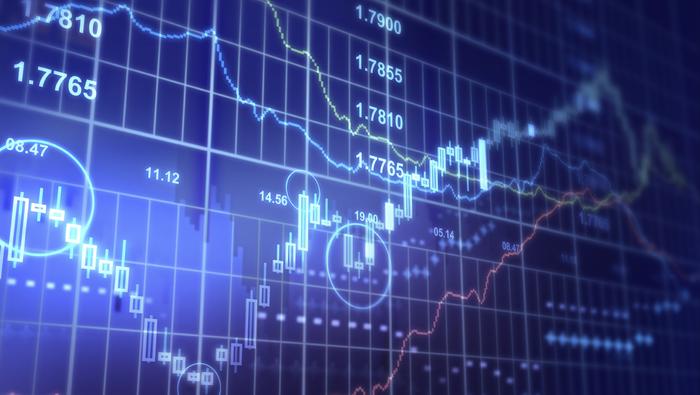Talking Points:
-Why Trading Isn’t Easy
-3 Common Misconceptions to Beware Of
-How to Avoid Harmful Biases
"One of the most useful things I’ve learnt over the years is to remember that if you don’t know what is going to happen, don’t structure your portfolio as though you do!"
-James Montier
Executing a trading plan well in a live account can often fall short of the expectations you had when you first came into the market. Execution, many find, is more about what you think about what you see on the charts rather than what’s rising or falling and the opportunities therein. This article will break down why your brain works against you in trading, common traps your mind is subject to, along with ways to overcome those inherent mental flaws for trading success.
Why Trading Isn’t Easy
There are a lot of great indicators out there. As an FX Trader, you likely started your journey looking for a great indicator without being aware of a key aspect to markets. Markets change, and because markets change you have to be aware of the fact that there are times when an indicator can highlight a profitable opportunity, but when the market environment shifts, that same indicator could become obsolete. As your years in the market grow, you’ll recognize that all indicators work some of the time and no indicator works all of the time.
Similar to the indicator example, your mind also hangs on to certain though processes. Because of the thought processes, trading isn’t easy and can be downright frustrating. In the end, your brain has likely never come into a scenario like the Forex Market that moves 24 hours a day / 5 days a week, and where you must manually put an end to losing trades instead of being taken out of a losing proposition as life normally does for us.
3 Common Mental Biases to Beware Of
A mental bias is a predisposition your brain acts under. This is a whole new realm of understanding than pure analysis, and as you’ll learn, analysis can make these biases more harmful and costly to traders. There are more biases that can be mentioned in this article, but here are the ones that traders like you and I have to be on guard for so that they don’t take our trading capital captive:
Overconfidence Bias
In my experience, the biggest draw downs come right after traders are convinced they’ve developed the Midas touch. The trader in this example may have 4-5 trades in a row at a reasonable trade size and then an idea strikes. They reason, they could do a lot more in terms of account equity gain if they amped up their trade size which they feel could do little harm as they’ve found the holy grail as shown by their streak of 5-winning trades. This bias, where you are extremely over confident for one reason or another, will make you fall into many traps of trading where you believe you know or can forecast where the market will be.
Learn Forex: USDCAD Elliott Wave Count Is Effective But No Guarantee Of Price Action

It’s best to stay humble. A trading proverbs states that there are, ‘Old Traders and Bold Traders but there are no, Old & Bold Traders. Rather, if you utilize Ichimoku or Elliott Wave, you need to keep your confidence in check because it can wreak havoc if it gets out of control.
Bottom Line: You’re trading strategy provides you an edge, but that’s it. You don’t know the future and if you trade like you do, you’ll overleverage and will likely fail miserably. Stay humble and trade conservatively with an account balance that helps you take advantage of the opportunities in the market when they are ripe for the taking without having to rely too much on leverage.
Recency Bias
Overconfidence bias can easily push someone into an overleveraged trade or see someone hold onto a losing trade because they feel their trade idea is better than it really is. Therefore, they should hold on until the market recognized their logic. Of course, the market doesn’t care if you bought at the top, bottom or somewhere in between. The Recency bias is when you saw a major move because of a fundamental story or monetary policy divergence a month ago but price stalls out, which you think is profit taking, and you attempt to get in hoping to catch the next big move.
However, we trade the hard right edge of the chart and it can be helpful to keep a mindset that everything I now know is priced into the market as everyone else likely knows this as well.
Bottom Line: When price doesn’t agree with the market news, it’s best to go with price. It’s important to understand that price often leads fundamentals and even when the fundamentals are bad, if they’re not getting worse, a bottom may be in place and trying to chase it lower can be a fatal mistake.
Gambler’s Bias
If you have a problem taking a loss as an FX trader, you’re going to end up with a big problem, as you’ll likely fall into the Gambler’s Fallacy. The Gambler’s Fallacy or bias is the concept that you feel you’re due a winning trade due to a string of losses. This type of thinking process can lead to doubling-down or engaging in a martingale approach, which is incredibly harmful, because you’re overleveraging against a smaller base of capital meaning an overleveraged loss could put your trading on life-support.
Bottom Line: Don’t double down on a losing trade because you feel that, “you’re due”. Instead, trade small until you get a feel for the market and only increase your trade size if your account is growing, never if it is declining.
How to Avoid Harmful Biases
As a trader, you cannot avoid losses. The only thing you can avoid is large losses or losses that make a comeback very difficult. One managerial strategy, known as premortem, asks you to imagine that your project or trade has failed. From the point of failure, you should work backwards to determine what potentially you could do to prevent a loss of capital that is detrimental to your trading career. In the end, you’re better off understanding that each trade is independent of every prior trade and that placing compounding importance on any one trade is very dangerous.
In Summary, you should know that:
-You’re not smarter than the market and the market will make you pay for acting as if you are
-You should not trade last week’s story as those who were in that trade already cashed out
-Never believe that you are due for a profitable trade because you’ve placed a string of losing trades
The ideal trading mindset should be one where every trade has little impact on your overall equity and you simply stick to the levels to determine whether your trade idea is valid or not. Traders get into trouble when they do not have objective levels to lean against, which can make it easier to fall into any of these biases. Therefore, you’ll continue to find trading difficult if you think it’s about a better indicator as opposed to addressing what’s between your ears.
Happy Trading!
---Written by Tyler Yell, Trading Instructor
Tyler is available on Twitter @ForexYell
To be added to Tyler’s e-mail distribution list, please click here.
Are you new to the FX market? Learn to trade like a professional with DailyFX!
Signup for this free “Trade like a Professional” certificate course to help you get up to speed on Forex market basics. You can master the material all while earning your completion certificate.
Register HERE to start your Forex learning now!




